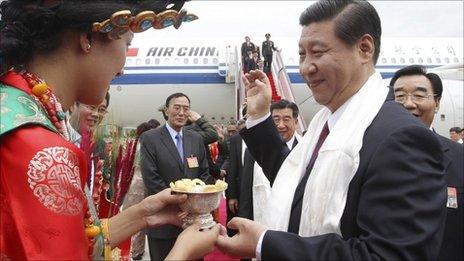President Obama hosts China Vice-President Xi Jinping
- Published
Barack Obama: "It is absolutely vital that we have a strong relationship with China"
US President Barack Obama has pressed China's leader-in-waiting on trade and human rights, as he welcomed him to the White House.
Meeting Vice-President Xi Jinping in the Oval Office, Mr Obama also said it was "vital" that Washington maintained a strong relationship with Beijing.
Mr Xi said he hoped his visit would deepen mutual understanding and friendship between the two powers.
The US and China have been at odds over trade, currency and human rights.
Xi Jinping: Purpose of visit to build relationship "based on mutual respect"
Mr Xi, 58, is widely expected to succeed China's President Hu Jintao, who must retire as head of the Communist Party later this year and from the presidency in 2013.
'Critical issues'
Washington has been putting pressure on Beijing over what it sees as unfair trade practices, as well as the value of its currency and intellectual property theft.
"We want to work with China to make sure that everybody is working by the same rules of the road when it comes to the world economic system," said Mr Obama, flanked by Mr Xi.
"That includes ensuring that there is a balanced trading flow not only between the United States and China but around the world."
Mr Xi's trip comes amid concerns over a clampdown by Beijing on protests in Tibet. Human rights activists staged a protest outside the White House as China's vice-president arrived.
"On critical issues like human rights we will continue to emphasise what we believe is the importance of recognising the aspirations and rights of all people," Mr Obama added.
During a state department lunch later, Mr Xi said there had been "tremendous" achievements for China in human rights in the past 30 years, adding "of course there's always room for improvement".
He also hailed further economic co-operation with the US, saying that any issues should be resolved through dialogue, "not protectionism".
The leaders were expected to discuss foreign policy issues, including Syria and Iran. But Washington also hopes to learn more about the Chinese heir apparent's leadership style, say correspondents.
Later, the Chinese vice-president met Defence Secretary Leon Panetta at the Pentagon and was received will a full honour guard.
Mr Xi and Mr Panetta made short remarks at the beginning of the meeting but did not take reporters' questions on issues including China's veto of a UN resolution on Syria.
However, Mr Obama told Mr Xi privately that the US was disappointed about the UN vote, according to reports quoting a senior White House official.
Mr Xi is making a week-long trip as the guest of US Vice-President Joe Biden, who made a high-profile visit to China late last year.
Earlier in the day, Mr Xi met Mr Biden and Secretary of State Hillary Clinton at the White House's Roosevelt Room.
Mr Biden said that while "we are not always going to see eye to eye", both nations would speak "candidly" about their differences.
On Wednesday, he is due to travel to Iowa to meet his hosts from his first visit to the US in 1985 when he was a county official.
He will then fly to Los Angeles, California, to meet business leaders and reportedly attend a Lakers basketball game on Friday.
'Frictions and differences'
Mr Xi's visit comes a year after President Hu's trip to Washington, which Mr Xi referred to in his comments provided by the Chinese government to The Washington Post, external.
In his remarks to the newspaper, he sounded a note of warning to the US over its presence in the Pacific. He said scaling up military activity was not what the region wanted to see.
China and the US, Mr Xi said, had ''converging interests'' in the region and there was ''ample space'' for both in the Pacific Ocean.
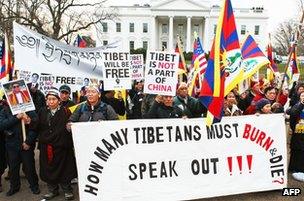
Pro-Tibet demonstrators held a rally outside the White House during the visit
"We also hope that the United States will fully respect and accommodate the major interest and legitimate concerns of Asia-Pacific countries," he wrote.
In his remarks to the newspaper, Mr Xi also emphasised that China had taken ''active steps'' to address US concerns over trade.
''Frictions and differences are hardly avoidable in our economic and trade interactions,'' he said. ''We must not allow frictions and differences to undermine the larger interests of our business co-operation.''
Mr Xi is also scheduled to visit Ireland and Turkey, following the US trip.
- Published14 February 2012
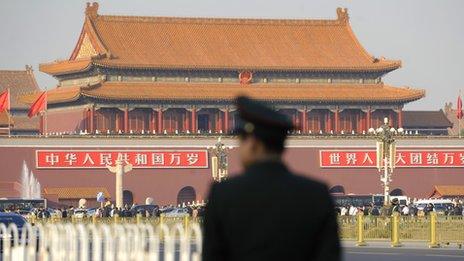
- Published14 February 2012
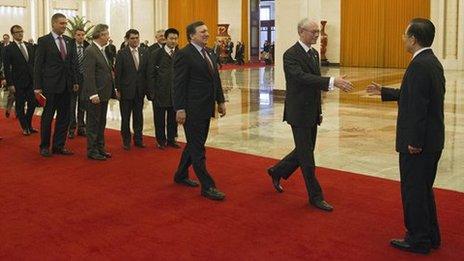
- Published13 February 2012
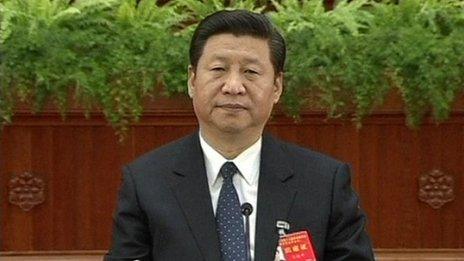
- Published10 October 2022
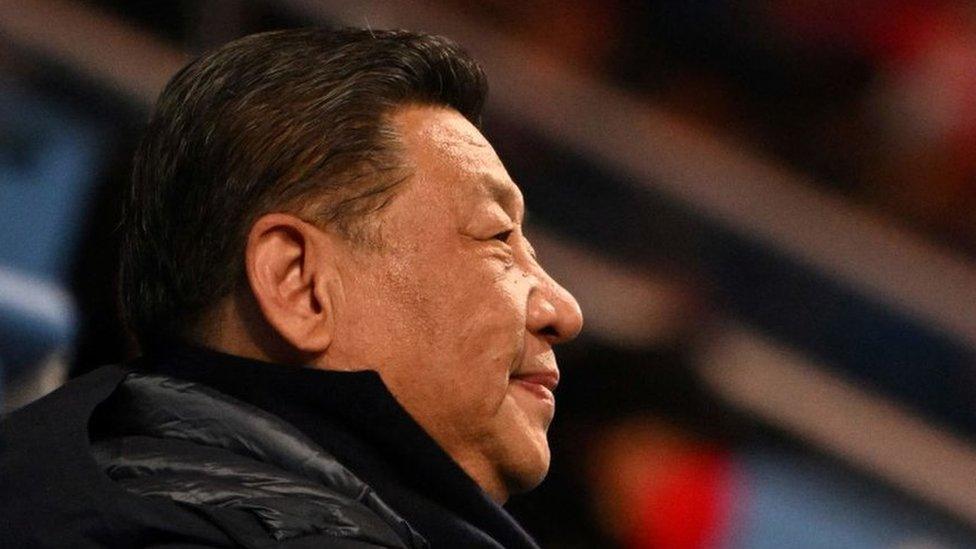
- Published19 July 2011
